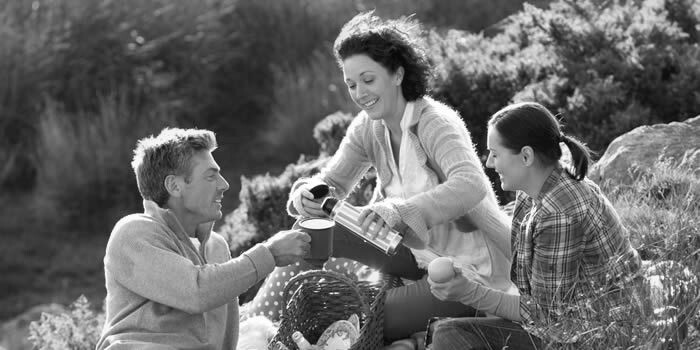
Philosophy & Vision
Helping people find their way by addressing the issues and questions that really matter to them. I aim to provide psychological services, which are professional, competent, informed, ethical, confidential, contextual, compassionate, and soulful.
My work is underpinned by values of freedom, 'care of the soul', mindful living, and the development and evolution of consciousness.
Background
25 years as a counselling psychologist and psychotherapist in private practice, community health, Non-Government organisations, tertiary education settings.
Services
Psychological Consultancy and dream work for adult individuals.
Concerned about Coronavirus?
I offer online therapy. Please contact me to make an appointment.
Quality Provision
Membership of professional associations, (Australian Psychologial Society, British Psychological Society, United Kingdom Council for Psychotherapy) which have professional development requirements. Personal therapy and professional supervision. Ongoing training.
Areas of Special Interest
Accreditations
- Vordiplom (Bachelor equiv.) Psychology - 1989 - TU Berlin
- M.A. in the Psychology of Therapy and Counselling - 1994 - Regent's College, London/Antioch University
Modalities
Dream Work - Jungian - Psychodynamic - Trauma-Informed
Therapy Approach
People have different needs based on different histories, cultural backgrounds, circumstances, personality traits, preferences, outlook on life etc. I try to be flexible with my approach as over 20 years of experience in the field have taught me that people, circumstances, the quality of a given relationship and a particular situation vary a great deal. This requires a capacity to respond to the needs of every moment with any given individual. No one approach or technique works for everybody or at all times.
Feeling heard and seen is vitally important and I regard the development of trust and understanding to be essential. I value the feedback that people provide about their experience of the work as research tells us that the client"s experience of it is crucial to the process.
Professional Associations
- Australian Psychological Society
- British Psychological Society
- International Association for Relational Psychoanalysis and Psychotherapy
- UK Council for Psychotherapy
Practice Locations
St James Trust Building
185 Elizabeth St.
Sydney NSW 2000
Train: Town Hall, St. James, Museum Stations
Buses along Elizabeth St.
Pay Parking on Elizabeth/Park/College St. and St. Mary's Cathedral Car Park
Appointments
Please call to discuss available times.
Fees & Insurance
Fees available on request
Private Health Insurance Rebates
Medicare Rebates with GP referral
(up to 10 sessions / calendar year)
Languages
English
German
Payment Options
Cash/Cheque/Netbank transfer/Credit Card (Visa/ Mastercard)
Contact Stefan
Please contact me to make an appointment

A conversation with Stefan Durlach
-
For as long as I can remember I've been interested in how life works, its meaning and purpose, the why's and how's of existence. Philosophy, psychology, and spirituality deal with these issues, and psychotherapy integrates them all and applies them to actual lives. Connected with this is a passion for following the oracle at Delphi's dictum of "know thyself', a fascination with reaching my human potential through an exploration of my internal world, which would enable me to offer this process to other people. I am very interested in how individual self-awareness interacts with and contributes to the development/evolution of consciousness of humankind.
At some point I realised that my own personal wounds and suffering provided also a strong, albeit for a long time, unconscious motivator to enter this profession. This has sparked my interest in the notion of the "wounded healer' and helping others integrate their wounds more consciously. To me psychotherapy is a practice of being aware, fully present, and a witness to someone else's life experience. I have learnt that when I'm able to focus my consciousness in this way it can have a powerful effect on others that can lead to profound changes in perception, sense of self, and experience of life.
Another thing I've realised along the way is the importance of care. There seems to be a dearth of real care in many aspects of life, and one of the many things psychotherapy can provide is a sense that someone cares. This can be a profound experience for people who've lived in environments where this quality was sorely missing. -
My original training had 3 main orientations: Existential/phenomenological, psychoanalytic/ Jungian, and humanistic/transpersonal. Over the last few years I have developed a strong interest in relational approaches and attachment theory.
Furthermore, my long-standing interest in spiritual traditions, and active involvement in a spiritual path over the past 25 years has influenced my orientation to life. They have given me a heightened appreciation for individual life experience, the preciousness of the human soul, simple acts of human kindness, a reverence for the sacred, and an emphasis on mindful, self-aware living that focuses on "being with' and being fully present in the moment. -
My main areas of interest are grief/loss/bereavement, childhood trauma, self-esteem, relationships/relational patterns, dreams, and the wounded healer. Over the last few years in particular I have developed a strong interest in interpersonal childhood trauma and its long-term effects in adults. This is a highly complex and challenging area of work but potentially highly rewarding.
As mentioned before, an underlying thread to all these areas, and my work in general, is helping people become more self-aware. This is important as our internal worlds shape our external behavioural and relational patterns and experiences, and hence our individual and collective worlds. Being more aware of our motivations, desires, values, and issues, and how these get translated into behaviours and relational patterns, which in turn evoke certain responses in others, gives us choices we didn't have when we automatically enacted behavioural patterns that just felt "normal', but may have had self-sabotaging or maybe even destructive aspects to them.
It seems to me that most of us have major themes, which run throughout our lives. For me, this is about our soul's journeys through life. Because there are so many distractions in life, being aware and in tune with the underlying thread that runs through our sometimes fragmented experience of living is important but can be difficult. This is partly about seeing patterns in our existence, determining what they are about, how they affect our lives, and what we can do to change them if we want or need to. I like working with dreams as they can present a different perspective on familiar issues and because of their unique way of connecting us with the above mentioned underlying threads. -
This varies a great deal depending on the individual and the moment. The human encounter is central for me. A lot of the people I see require a sense of validation through being understood and seen for who they are, usually because this has been missing from their lives. Listening, attending and being fully present is central to this. And of course being responsive to an individual's needs and the needs of the moment. This will be different in each situation and I try to be as open as I can to what's required in each unique situation. This means putting my assumptions aside for the time being to be able to be fully present to the other.
I regard this essentially as a lived mindfulness practice. To me, these are the essential ingredients for developing rapport and a trusting relationship, which I believe, and research tells us, are vital for therapy to proceed well. This orientation and associated behaviours can also provide a sense of care, which isn't usually what brings people to therapy, but is frequently an underlying need that emerges as therapy progresses.
I'm very interested in interactional patterns and how mutual space gets negotiated in people's lives as personal relational styles are expressions of people's way of being in life, which in turn shape life experiences. Examples of this are power dynamics in terms of how dominant/ submissive/equal we are in interactions with others, people's personal styles, ie. whether they put themselves forward, hold themselves back, go along with others, feel they've got nothing or lots to add/say etc. These patterns often get replicated in the therapeutic relationship and can be explored in terms of what they mean for the individual concerned and how they affect their life experience. Sometimes they also affect people's mental health, as particular types of patterns are associated with issues such as depression, anxiety, personality disorders, post traumatic stress etc.
At times it is helpful to be informed by therapeutic theories that can guide interactions, and I have been keenly engaged in learning about therapeutic theories and practices for 25 years. I engage in regular professional development activities to keep up to date with latest developments in the field.
As mentioned above, I like working with dreams as they can depict our internal state in ways, which are unusual and novel and which can connect to deeper aspects within ourselves. -
This is very individual and depends on many factors such as personal circumstances, histories, and individual objectives. Sometimes it happens in the first session, other times it can take considerably longer for change to occur, particularly with long-standing, entrenched issues. In my experience, as with most things in life, what people tend to get out of this process is usually proportional to what they're able and willing to put into it. Unlike some other modalities that address people's health, psychotherapy and counselling require a certain degree of motivation and active participation. A good match between client and therapist usually helps the process.
-
I have problems with the assumptions behind this question. What really is a "better' person? We are who we are, and over time we change, sometimes more and sometimes less intentionally. Whilst therapy is one potential vehicle for intentional change, it doesn't necessarily lead to being a "better' person. Hopefully a more self-aware person, however, who is able to take responsibility for their own actions and inactions. This I think is what it has done for me.
I am more aware and accepting of positive as well as negative aspects within myself, and know that having both is quite normal. It has given me a greater appreciation of people's motivations for doing things, which aren't necessarily obvious or sensible to the people around them, and the complexities and many dilemmas involved in living. Seeing people's struggles has also made me a more empathic, compassionate, and caring person.
Having had plenty of therapy myself I know from personal experience what it's like. -
Being with people and discussing aspects of their lives that really matter to them and that, often, people in their lives don't want to hear about. This can mean that their disappointments, sense of shame, failure, anxiety and hopelessness etc. become shared and often lessens as a result, which can lead to a reduction in emotional isolation and a greater sense of acceptance. I regard it as a privilege to get glimpses into people's inner worlds and to accompany them through (usually difficult) parts of their lives, particularly when there is a tangible change that results from this process. Sharing significant moments with people that deeply affect their lives and sense of self is a very gratifying experience.
In a world increasingly devoid of a sense of soul, I see the therapy space as one of few opportunities left in the collective world to keep the soul alive. However, whilst I have always seen therapy as a practice on the cultural edge promoting internal freedom. unfortunately a lot of contemporary therapy has become a practice of individual adjustment to cultural norms, which can stifle rather than liberate the soul.
-
Sure. Don't we all? The kind of days when nothing seems to go right and we're feeling out of centre. Within a therapy context there are two kinds: The ones that emanate from my own life and the ones that arise from work with clients.
Sometimes clients will experience very challenging states of mind, usually due to their histories, and interactions can become difficult to negotiate. Being able to sit through and contain such episodes can be a big challenge for both therapist and client, and misunderstandings are not uncommon. How these situations are ultimately negotiated really depends on the relationship that has been established.
-
The increasing loss of soul, sense of the sacred, and reverence in our world. I believe that visible manifestations of this loss are multiple massive crises occurring at the same time (environmental, financial, food, energy, health). There appear to be two main responses to this dire situation: One of hopelessness and resignation where many of us are getting on with our lives as if nothing were happening, fuelled by a flight into rampant consumerism which covers up a sense of helplessness and apathy.
On the other hand, there is an increasing activism, often supported by the internet that provides direct access to individuals and specific communities, which acknowledges the seriousness of the situation we are in, and tries to gather collective forces to address these important issues. The jury is still out on which way will go with these conflicting trends. -
There are too many to name! Some that come to mind are:
Movies: The Truman Show, Revolutionary Road. Amazing Grace,
Authors: Hermann Hesse, Llewellyn Vaughan Lee, Ken Wilber
Music: Adele singing "Someone like you'.
Published Articles
Research, Perspectives and Guidelines.
In my 20 years of work in the palliative care and bereavement fields, it has become clear...
Read more
The joys of play Playing is such a wonderful expression of our aliveness. Its lightheartedness...
Read more
Have you ever been woken up by a dream that stunned, scared or left a huge impression on ...
Read more
Friends! – What would life be like without them?! How much poorer would it and would we b...
Read more
The Context We live in a quick fix culture that tries to pack into living as much as it can, an...
Read more






